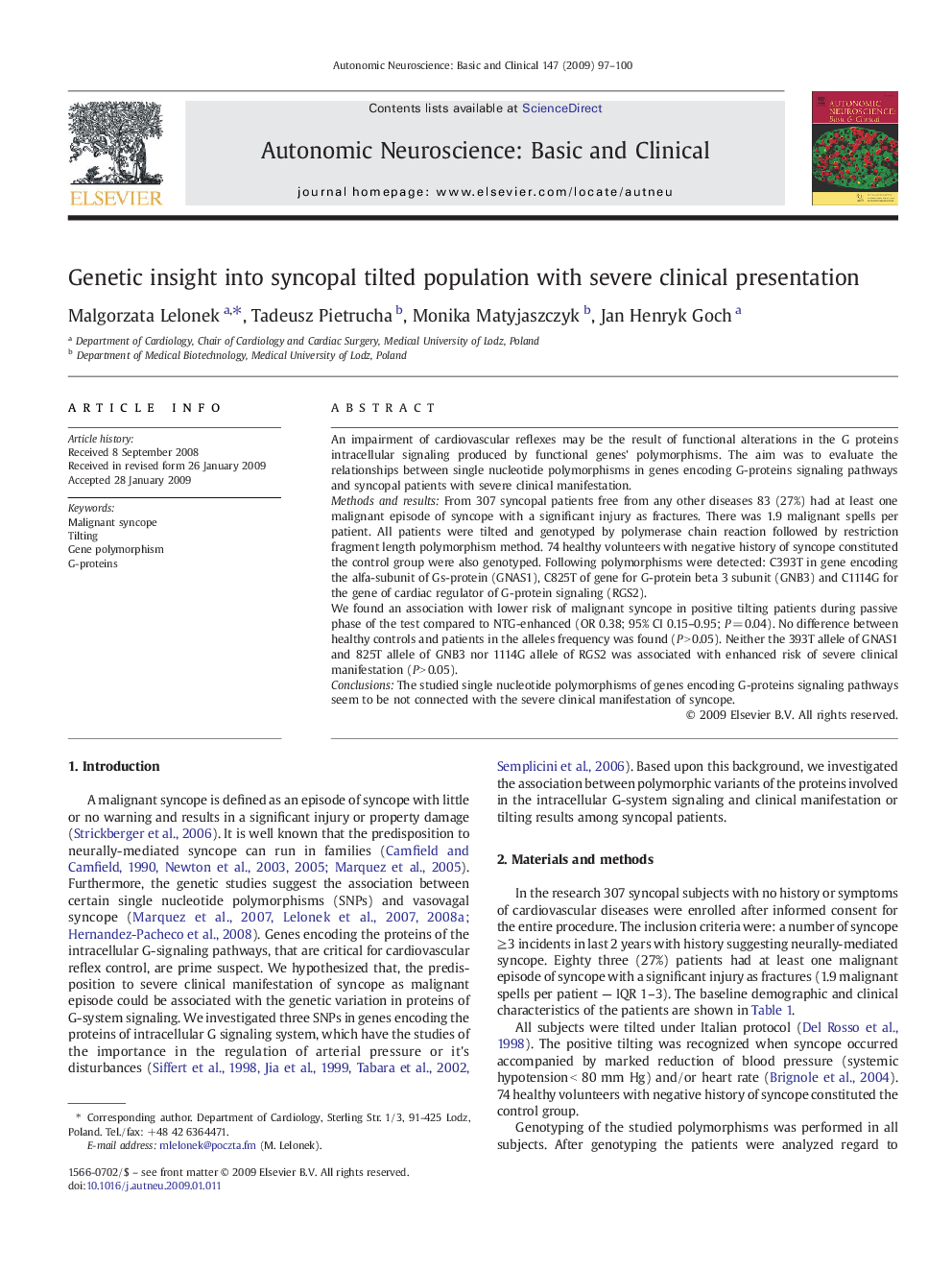| Article ID | Journal | Published Year | Pages | File Type |
|---|---|---|---|---|
| 3035393 | Autonomic Neuroscience | 2009 | 4 Pages |
An impairment of cardiovascular reflexes may be the result of functional alterations in the G proteins intracellular signaling produced by functional genes' polymorphisms. The aim was to evaluate the relationships between single nucleotide polymorphisms in genes encoding G-proteins signaling pathways and syncopal patients with severe clinical manifestation.Methods and resultsFrom 307 syncopal patients free from any other diseases 83 (27%) had at least one malignant episode of syncope with a significant injury as fractures. There was 1.9 malignant spells per patient. All patients were tilted and genotyped by polymerase chain reaction followed by restriction fragment length polymorphism method. 74 healthy volunteers with negative history of syncope constituted the control group were also genotyped. Following polymorphisms were detected: C393T in gene encoding the alfa-subunit of Gs-protein (GNAS1), C825T of gene for G-protein beta 3 subunit (GNB3) and C1114G for the gene of cardiac regulator of G-protein signaling (RGS2).We found an association with lower risk of malignant syncope in positive tilting patients during passive phase of the test compared to NTG-enhanced (OR 0.38; 95% CI 0.15–0.95; P = 0.04). No difference between healthy controls and patients in the alleles frequency was found (P > 0.05). Neither the 393T allele of GNAS1 and 825T allele of GNB3 nor 1114G allele of RGS2 was associated with enhanced risk of severe clinical manifestation (P > 0.05).ConclusionsThe studied single nucleotide polymorphisms of genes encoding G-proteins signaling pathways seem to be not connected with the severe clinical manifestation of syncope.
